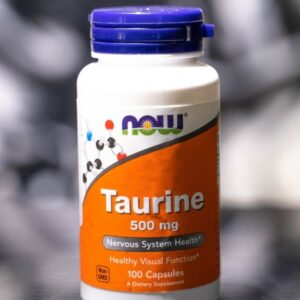Introduction
Nootropics, often referred to as “smart drugs” or “cognitive enhancers,” are compounds that have gained attention for their potential to enhance cognitive function, including memory, focus, and mental clarity. Theobromine, a natural compound found in cacao beans and various other sources, is one such nootropic that has piqued the interest of researchers and individuals seeking cognitive enhancement. In this comprehensive guide, we will delve into the world of theobromine nootropics, exploring their potential benefits, uses, and effects on the brain and overall cognitive function.
Understanding Theobromine
Theobromine is a bitter alkaloid found in cacao beans, tea leaves, and certain other plants. It is chemically related to caffeine, another well-known stimulant, but theobromine differs in its effects and mechanism of action. While caffeine primarily stimulates the central nervous system and has a ronounced effect on alertness, theobromine has a milder, more sustained stimulating effect.
Theobromine is responsible for the slightly bitter taste of dark chocolate and cocoa. It is often considered a vasodilator, which means it can widen blood vessels, potentially improving blood flow and circulation. This effect has implications for both physical and cognitive well-being.
Theobromine as a Nootropic
Nootropics are substances that are believed to enhance cognitive function, and theobromine is being investigated for its potential in this regard. While not as well-studied as some other nootropics, such as caffeine or modafinil, theobromine has several properties that make it an intriguing candidate for cognitive enhancement:
- Stimulant Properties: Theobromine acts as a mild stimulant, which can result in increased alertness and a sense of wakefulness. It may help counteract drowsiness and mental fatigue.
- Vasodilation: Theobromine’s ability to dilate blood vessels may improve cerebral blood flow, potentially enhancing oxygen and nutrient delivery to the brain. This improved circulation could contribute to cognitive benefits.
- Mood Enhancement: Some individuals report mood-enhancing effects when consuming theobromine. This is thought to be related to its ability to increase the release of endorphins, the body’s natural mood lifters.
- Potential for Memory Enhancement: While research is ongoing, theobromine’s vasodilatory effects may lead to improved memory and cognitive performance, particularly in tasks that require sustained attention and concentration.
- Neuroprotective Properties: Theobromine may have antioxidant and neuroprotective properties that help safeguard brain cells from damage caused by oxidative stress.
Sources of Theobromine
The primary natural source of theobromine is cacao beans, which are used to make chocolate and cocoa products. It is also found in tea leaves, with lower amounts present in other foods like guarana, cola nuts, and a few other plant sources. Theobromine is present in varying concentrations depending on the type of cacao bean, the processing methods used, and the specific product.
Potential Uses and Effects
- Improved Focus and Concentration: The mild stimulating effects of theobromine may help individuals stay alert and focused, making it useful for tasks that require sustained attention and concentration.
- Enhanced Mood: Theobromine’s ability to increase endorphin release can contribute to an improved mood and overall sense of well-being. It may offer a gentle mood lift, especially in combination with other pleasurable activities like exercise or enjoying a piece of dark chocolate.
- Memory Enhancement: While more research is needed, theobromine’s vasodilatory effects may lead to improved memory performance, particularly in tasks that involve working memory and recall.
- Potential Neuroprotection: Some studies suggest that theobromine’s antioxidant properties may help protect brain cells from oxidative stress, which can contribute to age-related cognitive decline and neurodegenerative diseases.
- Circulatory Benefits: Theobromine’s vasodilation effects can contribute to improved blood flow, potentially supporting overall cardiovascular health and preventing cognitive decline due to vascular issues.
Considerations and Precautions
- Individual Sensitivity: As with any nootropic or stimulant, individual sensitivity to theobromine can vary. Some individuals may experience jitteriness, increased heart rate, or other side effects, especially when consuming large amounts.
- Caffeine Interaction: Theobromine is similar to caffeine in structure and some effects. If consumed in combination with caffeine, it may lead to increased stimulation and potential side effects, so moderation is key.
- Health Conditions: Individuals with certain health conditions, such as heart arrhythmias or anxiety disorders, should exercise caution when considering theobromine, as it may exacerbate symptoms in some cases.
- Dosage: The appropriate dosage of theobromine can vary, and there is no established standard dose. Experimentation with lower doses is advisable to gauge individual tolerance and effects.
- Food Sources: Theobromine is present in chocolate, and its effects can be influenced by the specific type of chocolate and the quantity consumed. Dark chocolate contains higher theobromine levels compared to milk chocolate.
Conclusion
Theobromine, a natural compound found in cacao beans and tea leaves, is an intriguing candidate for cognitive enhancement and mood improvement. While it may not be as potent as some other nootropics, its mild stimulating effects, vasodilation properties, and potential for mood enhancement make it an appealing option for those seeking to support their cognitive function and overall well-being.
As with any nootropic, it is essential to approach theobromine with a measured and informed perspective. Individual responses to this compound can vary, and the appropriate dosage should be determined through experimentation and guidance from healthcare professionals if needed. The potential benefits of theobromine in enhancing focus, mood, and memory, as well as its neuroprotective properties, underscore the complex relationship between natural compounds and cognitive function.



